JOURNAL MEDIATION

Issue 4
in association with


in association with
At Regent’s University London our unique psychotherapeutic method of mediation training will equip you with a framework for conflict management and resolution crucial for dealing with commercial, employment, workplace, industrial, legal and personal disputes.

You will benefit from teaching provided by highly experienced tutors who are mediators from the psychotherapy and legal professions.
Students who successfully complete either course will achieve Accredited Mediator status.
In addition to a beautiful study location in Regent’s Park, we also offer bespoke in-house courses.

The 5 day course qualifies for Bar Council and Law Society approved CPD hours.
5 day course start dates: 3, 4, 9, 10, 11 February
5, 6, 11, 12, 13 May
14, 15, 20, 21, 22 July
PG Certificate start dates: January and September
Open evenings: 17 January, 18 April, 27 June
Find out more and sign up online for an open evening
www.regents.ac.uk/mediate
T: 020 7487 7505
E: enquiries@regents.ac.uk

(5 day course)
Postgraduate Certificate in Mediation and Conflict Resolution



(part-time course, Fridays and weekends)








It has been a interesting six months since the last issue of the UK Mediation Journal was published, on the day of the Brexit referendum result. It certainly seems that now, more than ever, the need for resolution, conciliation and a ‘mediatorly’ approach is stronger than it ever has been.
Thankfully there has been significant progress in the mediation world. The All Party Parliamentary Group on ADR continues to gain momentum. The Lord Justice Briggs report firmly placed emphasis on mediation and other forms of ‘alternative’ dispute resolution being used over and above the courts, ultimately culminating in the hope that the ‘A’ will be removed from ADR. See more on page 32.
We have encouragingly, in recent months, seen an uptake in the promoted use of mediation within the NHS.
In the workplace in general more companies are taking up mediation, and we spoke to ‘change, grow, live’ about how they successfully implemented mediation in their organisation (see page 25).
We held our first event in June of this year, to coincide with the release of Issue 3, where companies from across the UK travelled to London to hear from the experts about how mediation can help their organisations. The CMC are also running an event; ‘Save Time, Save Money, Save Stress: Make Mediation Work for You’. The event is for those considering bringing mediation into their organisation but not sure how, and for those already using it, but looking to expand the reach of that service (see page 10).
This year also saw the first UK wide Mediation Awareness Week take place in October with events up and down the country spreading awareness of mediation.
Lastly we have increased our distribution to a massive 100,000 thanks to a number of our partners and advertisers.
So all in all, a big year for mediation, and here is to an even bigger 2017.
Hannah Randolph UK Mediation JournalPage 6 >> Centre For Mediation & Dispute Resolution - Nottingham Trent University Law School
Page 9 >> Got a Grievance in The Workplace? - Mediate!
Page 11 >> Save the date: Workplace Mediation Conference 1st February 2017
Page 12 >> Mediation in the Workplace: Have Formal Processes Had Their Day?
Page 15 >> Mediation: The Chain of Pain and How to Get Off it
Page 16 >> Independent Research Into the Impact of Early Conciliation 2 years on and the Next Steps

Page 19 >> The Importance of Values
Page 20 >> The Business Case for Mediation
Page 22 >> Business Critical: Implementing Mediation Into Your Organisation
Page 25 >> Implementing Mediation CGL Case Study
Page 27 >> Independent Mediators Limited
Page 29 >> Mediators’ New Breakfast Club
Page 30 >> CMC Membership Choices

Page 32 >> Civil Courts Structure Review by Lord Justice Briggs
Page 35 >> Brexit and the Need for Psychologically-informed Mediators
Page 37 >> Directory Mediation & Training Providers
Whilst every care has been taken in compiling this publication, and the statements contained herein are believed to be correct, the publishers do not accept any liability or responsibility for inaccuracies or omissions. Reproduction of any part of this publication is strictly forbidden. We do not endorse, nor is Iconic Media Solutions Ltd affiliated with any company or organisation listed within. It is advised before appointing a mediator or trainer that you carry out your own quality and competence checks.



 By Amanda Bucklow, Chair, Communications Committee
By Amanda Bucklow, Chair, Communications Committee
On 4th November 2016 Nottingham Trent University Law School (NLS) launched their new Centre for Mediation & Dispute Resolution. Law students, mediation practitioners, legal professionals and academics enjoyed an excellent day of learning and engagement. The morning was reserved for NLS students who had the chance to see a demonstration of mediation punctuated with small group coaching sessions lead by experienced professionals on key points arising out of the demonstration.
For the afternoon session, Professor Richard Butler set the scene with a comprehensive and challenging look at mediation, the benefits for legal practitioners and how the Centre could contribute to professional development.
The rest of the afternoon was devoted to an Open Space collaboration lead by independent commercial mediator, trainer and CMC Trustee, Amanda Bucklow. Open Space is a process for large groups which shares many of the principles and values of mediation. There are 4 principles and 1 law.
The principles are:
1. Whoever comes are the right people
2. Whatever happens is the only thing that could have happened
3. Whenever it starts is the right time
4. When it is over, it is over.
And the law is, if you are neither contributing nor learning then it is your responsibility to respectfully use your two feet and find somewhere where you can.
It is a very time efficient way to cover many subjects and invites participants to contribute to topics which interest them and on which they are prepared to take action. The ‘agenda’ is co-created by the participants and comprises questions and topics that most interest them.
By the end of just two hours, a wide variety of topics had been debated, suggestions developed and refined and action points recorded. Those ideas and suggestions will be reviewed as part of the Centre’s exercise in deciding how projects might be scoped and prioritised.
The event was rounded off with a stimulating and thought-provoking speech from The Hon Sir Peter Coulson, Judge of the Technology and Construction Court.
The aims and objectives for The Centre of Mediation & Dispute Resolution have been carefully framed to avoid
duplicating the efforts of other respected mediation bodies: rather to support and extend their reach and influence whilst providing specialist teaching and experience for NLS students.
The catalyst for setting up the Centre was the observation that there is very little substantive research to underpin the training and accreditation of mediators, the provision of mediation services by organisations and the quality and professionalism of mediators all of which are currently unregulated and unsupervised.
Arguably, this has worked well so far and yet with the expectation that mediation will play a much greater role in dispute resolution comes a corresponding need to both better equip lawyers going into practice and those working in-house with the necessary skills to represent their client and protect their clients’ interests. Currently skills training in this area is piecemeal and inconsistent.
If users and the wider community are to gain the full benefit from the use of mediation and its potential to enrich society, research is needed into these areas.
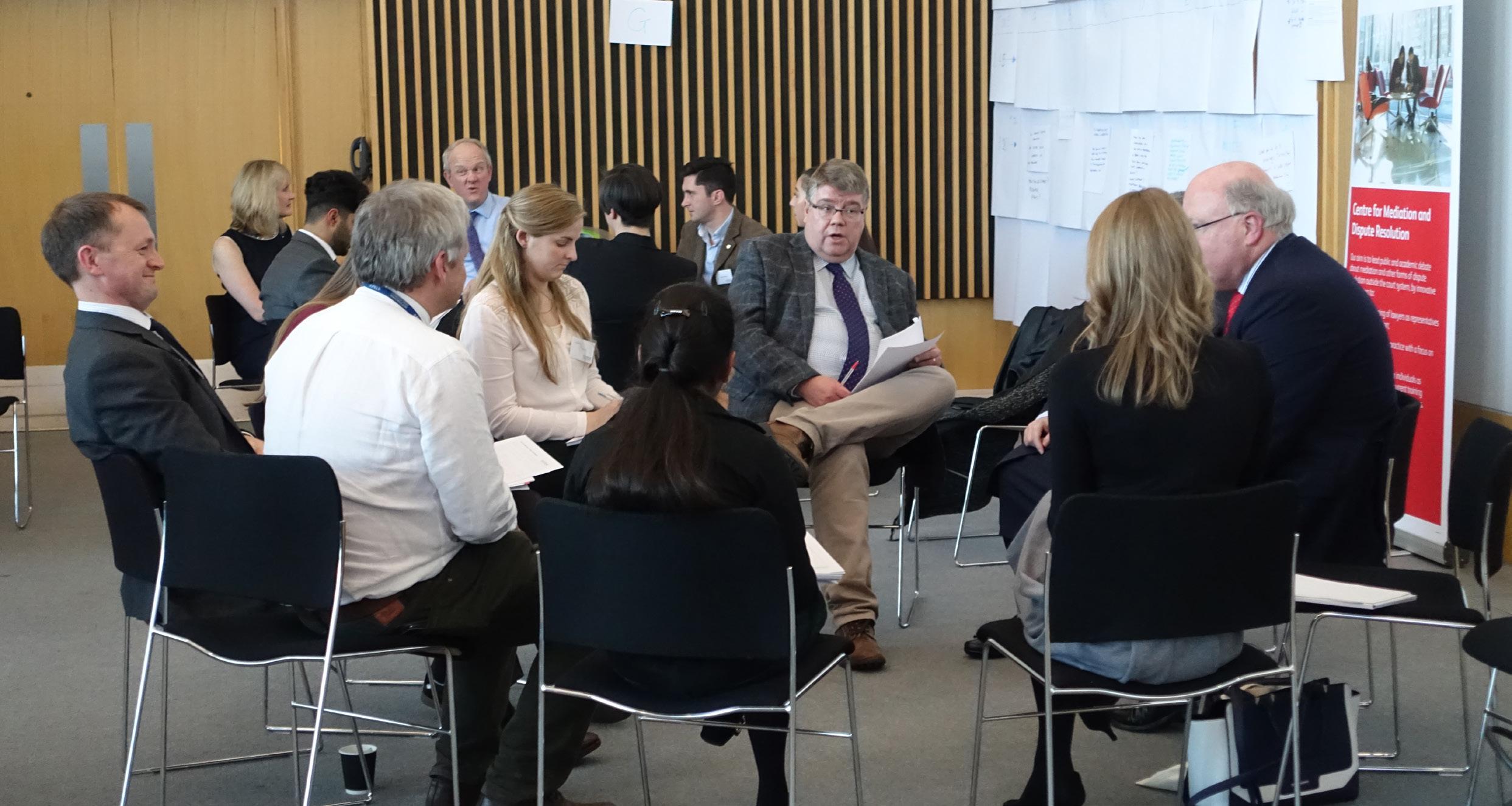
The vision for the Centre is that it will become the major UK university based centre offering research led commentary and innovative contribution to:
• The role and training of lawyers to be effective as representatives of clients in mediation;

• The most effective and efficient styles of mediation practice with a particular focus on the user perspectives;
• The development of ethical standards and performance indicators likely to achieve acceptance
within the mediation community including users as a step towards institutional acceptance and codification;
• The methods of selecting, training and developing individuals as effective mediators with particular regard to current training practices and the validation of institutions.
The intention is to have a practical and practice profile and for the Centre to facilitate, commission and identify commercial funding for research as well as initiating research.
In addition, the Centre for Mediation & Dispute Resolution will also have a practice profile which, it is hoped, will provide a means by which students at NLS via the Legal Advice Centre will be able to take part in mediations alongside local mediators offering a pro bono element to their mediation practice.

CMC warmly welcomes the initiative and looks forward to working with the Centre.

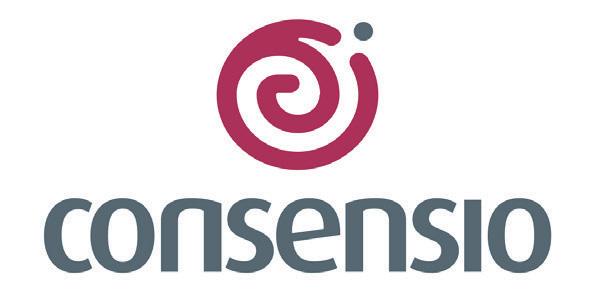

Businesses are increasingly discovering the advantages of using mediation in the workplace to resolve all kinds of issues that arise between employees. Often when these situations arise it is better to nip them in the bud before things get so bad that one or other of the employees resigns or leaves.

It was recently reported that women are complaining about being forced to wear high heels to work or receiving unwelcome comments about their appearance. Men generally do not have this problem because they are not judged so much by their appearance and the main choice is whether to wear a tie and what colour.
Employers regularly tell women to put on more makeup, wear high heels and short skirts, research has found.
Large numbers of women feel their employer has unfairly criticised their appearance in the workplace, with nearly 20% saying they felt that managers paid more attention to their appearance than to that of their male peers.
Nearly 10% of women have been told by managers that they would prefer them to wear high heels in the office or when with clients, because it made them ‘more appealing’. Many women revealed they had been told to dress more provocatively and to be ‘sexier’ – with 86% of those pressured to dress ‘sexier’ and feeling their career might suffer if they didn’t comply. It has to be said that sometimes it is the other way round in law firms, where it is felt that junior women should dress less provocatively.
Scrutiny of their appearance at work frequently left some women feeling ‘humiliated’, according to the survey, with nearly one in ten told to wear more make up so they ‘looked prettier’ and a similar percentage given a dressing down about their appearance in front of colleagues.
The survey of 2,000 employees also found that men were aware of the disparity, with almost half saying they felt that their dress code was more clearly defined and colleagues were far less likely to comment about their appearance than that of their female colleagues.
The study was commissioned by a national law firm, after a rise in the number of clients mentioning comments made by their employers about their appearance.
The law regarding dress codes is relatively clear. An employer is allowed to impose a dress code on its employees but usually this will be put in place for health and safety reasons, or to promote a particular image, for example, of smartness and efficiency.
A dress code must not be discriminatory on protected grounds such as gender or religious belief, and disabled employees have the right to have adjustments made to alleviate disadvantage.
It was some years ago that the legal profession relaxed the rules concerning Court dress and women could wear trouser suits and earrings in Court. When I first began in practice a judge might refuse to hear a woman at all if she was not dressed in a traditional manner.
Appropriate dress at work has been controversial for a long time, with disputes regarding religious symbols and headscarves, for example, being highlighted in the press. A lawyer was recently criticised by the judge for wearing badges and insignia in Court and looking ‘like something out of Harry Potter’. In France, there has been uproar over the ban on wearing the ‘Burkini’. Dress down codes can be a fraught area in the workplace, with arguments over what is acceptable ‘smart/casual wear’. At the start of term, a school recently hit the headlines when it started to enforce its uniform code.
When such issues arise in a workplace environment it can lead to allegations of discrimination, intimidation, even stress, and bullying. Low morale, under performance, absenteeism, and even resignations, can follow. Such disputes between an employer and employee frequently manifest themselves into a formal grievance against the employer. A grievance can lead to an employment tribunal claim, which, apart from time and expense, carries the risk of damaging the business’ reputation, whether justified or not. A sensible and cost-effective way to deal with such issues and defuse them promptly is to call on the services of an independent workplace mediator.

Designed to be interactive with audience polling, the conference is focussed on helping you sell the benefits of mediation and facilitation within your organisation. Specifically, we will provide tips on:
• Raising awareness amongst staff of workplace mediation
• Success factors and challenges in both its introduction and its take-up
• Encouraging management participation
• Using workplace mediation as an integral part of your grievance procedure

• Proactively addressing workplace disputes
• The role of mediation in future employment litigation.
Running from 3.15pm to 6.15pm, the conference will share with you important insights into the process of making mediation the default option in workplace and employment disputes. CMC Workplace and Employment group Chair, Caroline Sheridan, is pleased to confirm our high-profile speakers will include:

Sir Alan Ward, Chairman, CMC
Sir Brendan Barber, Chair, Acas
Professor Paul Latreille, Deputy Pro-Vice Chancellor for Learning & Teaching, Sheffield University
Pete Hodgson, Head of Employee Relations, Tesco Stores
Orla Tierney, Head of Employee Relations and Reward Director, BBC
Dr Jurgen Klowait, Former Counsel, E.ON
David Whincup, Partner, Squire Patton Boggs
Convert or sceptic? This workplace mediation conference is for you. Whether in-house counsel, HR, line management, trade union or work representative, it will show you how to use mediation to get the results which will make your Board sit up and take notice.
Book by 27th December to receive £5 off.
Scan to book:
Wednesday February 1st, 2017
The Old Library, Lloyd’s of London, 1 Lime Street, EC3M 7HA
Registration - 3pm Conference - 3.15pm - 6.15pm followed by drinks reception to 7pm
Cost: £40 + vat per person Early Bird discount available
All guests require a valid photo ID
Caroline Sheridan, Chair, Workplace and Employment Group, CMC
The CMC’s Workplace and Employment Group is building good momentum in identifying and implementing activities to support its primary goal: to create a culture where workplace mediation is a normal business process rather than the last resort.

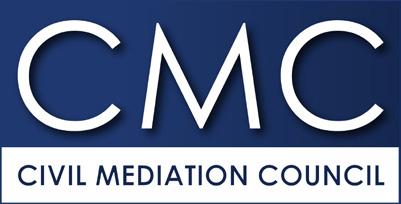

There is a clear trend towards organisations offering conflict resolution and mediation skills for managers and leaders as part of their development programme. However, workplace conflict management is not yet considered a core managerial competence but we are seeing signs that this is changing in some sectors. We aim to encourage the development of training in this area and we are looking at ways to support a shift from ‘add-on’ to ‘integral’ in terms of leadership and management skills training.
There are further public signs that mediation and the benefits it brings are moving up the awareness curve. By way of example, I was pleased to participate in a session providing an overview on current trends of workplace Alternative Dispute Resolution1 for the All Party Parliamentary Group on ADR2. It is very encouraging to have an active APPG with members who are well-versed and supportive of growing mediation as a cost-effective and human-friendly process in all walks of life. Naturally, we look for signs and expect that this awareness will now accelerate in the period ahead.
The main focus of our work has been to identify ways to address the notable gap between the success rate (over 80%) in ‘formal’ mediation in the workplace and its utilisation, which remains disappointingly low. Given the positive benefits of mediation on the one side and the damaging effect of disputes on the other, one obvious question has to be ‘what is preventing mediation being the default remedy for workplace conflict?’
Part of the answer lies in education, awareness and training. The confidence to propose and promote a process
comes either from experience or from recommendation or both. To that end, we have designed an event to meet that need.
On February 1st 2017, the Workplace and Employment Group will host a conference in the Old Library, Lloyds’ of London. The conference is designed to equip business leaders, in-house legal teams, HR professionals and trade union or worker representatives with the necessary information and approaches to ‘sell’ mediation within their organisation. Invited speakers have specific experience in introducing workplace mediation and making it part of managers’ thinking and practice.
The conference will include contributions from the BBC, Sheffield University, Tesco Stores, Squire Patton Boggs and mediation practitioners together with other experienced users from the business community. CMC Chair Sir Alan Ward and Sir Brendan Barber of Acas will both address the conference. Details can be found on the CMC Events page.3
In line with another of our objectives, work has started on the refinement of appropriate professional standards for achieving and sustaining CMC-approved mediator or mediation provider status. This is an integral part of our being able to offer a form of ‘kite-mark’ for mediators, for the benefit of potential clients as well as for the practitioners themselves. The Workplace and Employment Committee would welcome any ideas or suggestions readers may have to inform this initiative so that the outcome is relevant to all.
Please email: registrar@civilmediation.org, FAO: Workplace Chair

1 https://www.youtube.com/watch?v=6QVag1omaPw&t=29m00s
2 http://www.ciarb.org/policy/uk-appg-on-adr
3 http://www.civilmediation.org/news

 By Dionne Dury, Operations Director, Mediation at Work Ltd
By Dionne Dury, Operations Director, Mediation at Work Ltd


Most people have heard of workplace mediation. However, having delivered training to many HR professionals and Line Managers I frequently hear accounts of situations where organisations are asking HR / Line Managers to mediate between members of staff in conflict situations but the accounts I hear are not “mediations” in the true sense of the word. The individuals often have not had any formal conflict resolution training and find that they do not have the necessary skills that a mediator will possess, to manage the conflict.
A true mediation process will be carried out by someone independent and neutral. It will start with the mediator meeting separately with the parties to get an understanding of the issues and concerns from each parties’ perspective. This will be followed by a joint session where the mediator will facilitate the discussion and, using techniques such as positive reframing, explore what is behind the parties’ respective positions and try to move them towards shared interests.
A grievance process is adversarial; you have two parties presenting their differing perceptions on the issues and what they believe to be the solution to the problem. You then have the Investigating Officer who considers the evidence and imposes an outcome. It can never provide a win: win situation for both parties as there will always be one party left feeling dissatisfied with the outcome. Instead of being empowered to come up with solutions the parties have little say in the outcome.
People in a conflict situation will also tend to take up fixed positions and present a perception of what the problem is but when this is explored through mediation, what is presented as the issue is not the issue at all and it is what is underneath that is important. Underneath are people’s needs and interests e.g. saving face, the need for job security etc.
In my experience, as both a workplace mediator and previously as an employment lawyer of over 11 years, where there are interpersonal issues between members
of staff the grievance process will only widen the gap between the parties rather than address these underlying issues. This is then compounded by the fact that following the conclusion of the grievance process the parties are often expected to still work together.
In my view, this is where formal processes have had their day and organisations should look to explore mediation first.
Mediation can be used with great effect at any point in a conflict situation however when used at an earlier point (before a formal complaint has been raised) relationships will often suffer less damage. It is also less likely that parties will have become entrenched in their positions.
It can be used in a variety of situations. Some examples are:
• conflicting perceptions around performance;
• conflicts around communication style; and
• breakdowns in communication.
It is most commonly used where there are interpersonal issues which (if left unresolved) are likely to lead to a grievance being raised.
There are still going to be cases where mediation may not be appropriate. The most likely being where there are serious disciplinary allegations e.g. gross misconduct, a significant imbalance of power or potential safeguarding issues. Also, in situations where a party disagrees with a management decision and wants to challenge that decision, a formal determination may be required.

Mediation is also voluntary so the parties must want to engage in the process.
Although there will be some cases where mediation may not be appropriate it can be used in most cases and studies have shown that when it is used the success rates are very high.
Other significant benefits to mediation are:
• Cost Savings
Organisations that are regularly using mediation have found a significant reduction in the number of grievance / disciplinary cases. This, in turn, has resulted in substantial costs savings to the organisation as less senior management time is taken up in carrying out Grievance / Disciplinary hearings and appeals, speaking with Trade Union officials, solicitors and dealing with any Tribunal proceedings that might ensue.

• Reduction in staff absences
Studies have shown that unresolved conflict is one of the biggest causes of stress related absence and low productivity, due to low staff morale.
• Privacy
It preserves relationships as it allows individuals and teams the opportunity to discuss any issues in a confidential and private setting.
• Empowerment
It empowers individuals to come up with a solution to the problems.
So, the next time you become aware of a conflict in your workplace, why not consider speaking with the parties about mediation; you may be pleasantly surprised by the benefits that the process offers.
www.mediationatwork.co.uk


Conflict at work is a costly business. It can happen in any workplace. Differences between individuals at work can lead to grievances, absences and loss of valuable employees.
Mediation helps people who don’t see eye to eye to sort out their differences as quickly as possible and so minimise distress and cost.

The Acas Certificate in Internal Workplace Mediation draws upon decades of Acas experience in handling workplace disputes, grievances and conflict.
This fully accredited course equips your managers with the skills to become effective workplace mediators, helping to reduce conflict, increase productivity and re-energise employee engagement in the workplace.


Andrew Hildebrand is a mediator at In Place of Strife, The Mediation Chambers. In Place of Strife is the Chambers for many of the UK’s most experienced mediators. To find out more please visit our website, www.mediate.co.uk or call our office on 0333 014 4575.
Have a look at this. Familiar, isn’t it?
MILD
• Poor relationship management
• Insensitive use of language
• Unresolved conflict
3. If the protagonists can’t resolve matters, this is the likely continuum. Until somewhere along the line something boils over or someone reaches for a litigator. Then the conflict mutates again. This time through a legal prism.
Because it shows two other things too:
a) How much more is often at stake. Whether it is a boardroom dispute or a band dispute, an inheritance claim or a contractual one, it is also about financial issues, relationships, egos and reputations. Not things the courts are particularly good at dealing with.
• Trust deteriorates
• Communication & relationship breakdown
• Entrenchment
• Relationship disintegrates
• Threats
• Focus shifts from own best interests to conflict itself
I drew it while reading Sarah Barclay’s excellent study about paediatric services.1 It shows how conflicts escalate and pinpoints warning signs. Looking at the diagram, I was struck by three things:
1. In commercial disputes, you often see a ‘chain of pain’ like this. Possibly, also complicated where people are communicating by email. Not face to face.

2. Our views tend to be amplified by the illusion that we are right and the other person, deluded. As comedian George Carlin said ‘Have you ever noticed that anybody driving slower than you is an idiot, and anyone going faster than you is a maniac?’
b) How much easier resolving things can be if you know how to intervene early enough. Less expensive and destructive too. Think of it as business marriage guidance. With someone like a mediator who can listen - to the words but also the gaps in between – and who can help everyone resolve things there and then.
So that you get off the chain before it escalates. Or better still, avoid it completely.
For details of Andrew’s upcoming ‘How to Settle a Dispute in a day’ and ‘Mediation for In-House Lawyers’ courses, please contact In Place of Strife on 0333 014 4575.



Early Conciliation (EC) was introduced in April 2014 to encourage early resolution of cases destined for the Employment Tribunal. It provides for a mandatory notification to Acas before a claim to an Employment Tribunal can be lodged and this triggers an automatic pause of up to a calendar month in the time limit for lodging a claim. For further information please read the previous article on page 15 in Issue 3 of The UK Mediation Journal.
Following last year’s research to evaluate Acas’ Early Conciliation (EC) service, Acas wanted to gather information about cases where the employee went on to submit an Employment Tribunal claim, as conciliation remains available up to the point of a tribunal hearing and their aim is to continue to offer a seamless service.
Acas asked users of the service about the impact of Acas’ conciliation in cases which progressed to an Employment Tribunal claim. The survey followed employers and employees through the different stages of conciliation. The independent research found that almost 75% of employees were satisfied with Acas’ conciliation after they made a tribunal claim, while more than 85% of employers said the same. Even higher levels said they would use Acas’ conciliation again if in a similar situation. And more than 60% of employees and more than 45% of employers who went to tribunal said EC had helped them feel prepared for the tribunal process.
Asking users of Acas’ services for feedback through surveys is crucial in assessing whether Acas is meeting user needs, and helps them to improve their services. As a result of the research Acas has revised their online guidance to give a clearer explanation of their role in conciliation, and made improvements to how potential claimants and their representatives can provide information on their cases to us. The full findings of the research on conciliation are published on the Acas website.
Acas continues to develop the Individual Conciliation service to improve service to customers.


• Acas is exploring aspects to digitise elements of their conciliation service making it easier and quicker for service users, without impacting existing elements of the current service;

• In particular; identifying the opportunities wit h reference to what customers do now, who might be willing to use online services and why, and whether the needs of conciliation can be in some way better met via a (partially) online offering.
• Acas is also considering whether some specialisation in the sort of cases handled by its Conciliators can improve service.
Research conducted by TNS BMRB on behalf of Acas. Surveys were conducted between November 2014 and March 2015 and between September 2015 and January 2016 over the phone. A total of 2,592 interviews were completed in survey 1 and 1,002 in survey 2.

Acas conciliation Evidence of and impacts
71%
EC Early Conciliation
of
Resolving disputes
by Acas avoid ET at ET stage
71%
EC – Early Conciliation ET – Employment Tribunal

avoid
of EC users helped by Acas to avoid reaching ET1
Acas conciliation
when Easier settlements Future use
use of helped resolve ET claims quicker2: Prior of made settlement at ET stage more likely
Evidence of success and impacts Resolving disputes Quicker settlements Easier settlements
EC had
taken
Prior
to avoid
Users satisfied with conciliation in ET applications3
settled at EC helped by Acas
Satisfied
Would use conciliation again in the future6: even-handed
avoid ET hearing 31% 17% 22% 1%
had taken place Satisfied service Impartial Further for
83% 89%
Claimants agreed Employers agreed

agreed
Advice/guidance from employers meant
employers
Prior use of EC helped resolve ET claims quicker2:
87% 92% implemented new policies, procedures or practices8 31% 17% 22% 1%
Future use
Would use Acas conciliation again
25% 23%
87% 92% implemented new policies, procedures or practices8
felt they could avoid future ET claims7
Users satisfied with Acas conciliation in ET applications3

87% 92% implemented new policies, procedures or practices8 settled
Further benefits
facilitation and community engagement services.
Our highly experienced trainers deliver accredited community mediation training and short courses tailored to the needs of your organisation.

To find out more contact us today on:

Do you ever stop to consider what principles guide you in the decisions you make, what you do, what you say and how you behave? If you do, then you are probably aware of your own personal values. Values, together with our beliefs and assumptions, are the compass guiding everything we do – our choices and our actions. In times of uncertainty or crisis, sticking to our core values makes all the difference between finding our feet and losing our way.
Values are important to organisations as well as individuals. The Civil Mediation Council was proud to support World Values Day which was held on 20th October 2016. The Day provided an opportunity to think about the values that drive us and consider the extent to which we act consistently with them in our work as mediators. In order to do this, organisations were encouraged to engage with one of the exercises on the tools and resources page of www.worldvaluesday.com
hold provides insight into changes in behaviour that need to occur in order to develop congruence, an important precursor for trust and trustworthiness, and cohesion, in the case of organisations. Understanding the needs behind each set of values can further develop a deeper awareness of what is required for personal or professional development.
One model for examining our values divides them into three groups which can be mapped onto the seven levels of consciousness which every human being (and organisation) goes through in its evolution:
The most successful individuals are those who balance all three areas. They trust themselves and others, are able to manage complexity and can respond or adapt to all situations. An organisation which operates systems and practices which balance the competing needs for it to survive and be of service, and has within it people who share the same values as the organisation, will be successful and an enjoyable place to work too.
You can access your own short report on values at www.valuescentre.com/pva. World Values Day 2017 will be held on 19th October 2017.
At a recent Away Day, the Directors of the CMC identified the following values as important to the practice of mediation: trustworthiness, openness, self-awareness, integrity, discretion, creativity, empathy, energy, resilience and focus. We then reflected on the extent to which our own actions as Board members and as an organisation which promotes high standards in mediation were congruent with those key principles.



Being aware of where our actions fall short of the values we
Our values reflect what is important to us. They are a shorthand way of describing our individual motivations. Together with our beliefs, they are the causal factors that drive our decision-making.
Barrett Seven Levels of Consciousness Model
Service
Self-less service
Making a Difference
Making a positive difference in the world
Internal Cohesion
Finding meaning in existence
Transformation
Letting go of fears.
The courage to develop and grow
Self Esteem
Feeling a sense of self-worth
Fear: I am not enough
Relationship
Feeling protected and loved
Fear: I am not loved enough
Survival
Satisfying our physical and survival needs
Fear: I do not have enough
Credit: Richard Barrett at the Barrett Values Centre www.valuescentre.com
www.valuescentre.com
Values can be positive or fear-based (limiting). For example, honesty, trust and accountability are positive values, whereas blame, revenge and manipulation are potentially limiting, or fear-based, values.
Personal mastery involves overcoming or eliminating our fear-based beliefs. When our beliefs or behaviours are out of alignment with what is really important to us - our values, we lack authenticity.
Every human being on the planet grows and develops within seven well defined areas. These areas are defined in the Barrett Seven Levels of Consciousness Model Each area focuses on a particular need that is common to all people. The level of growth and development of an individual depends on their ability to satisfy these needs.

The lower three areas of awareness – Survival, Relationship and Self-Esteem – focus on our personal self-interest, satisfying our need for security and safety, our need for love and belonging, and our need to be acknowledged and appreciated. We feel no sense of lasting satisfaction from being able to meet these needs, but we feel a sense of anxiety if these needs are not met.
At different times you may find that you focus more on some levels and less on others, in response to changing life conditions. It is important to understand that in terms of the seven areas higher is not better; for example it will be difficult for you to focus on helping others if you are having health and money problems.
The seven areas in the development and growth of personal awareness are summarised in this diagram and are described in more detail on page 3.
The focus of the fourth area of awareness, Transformation, is on letting go of fears. During this stage in our development, we establish a sense of our own personal authority, and our own voice. Within the area of Transformation, we can choose to live by the values and beliefs that resonate deeply with who we are.
The upper three areas of awareness – Internal Cohesion, Making a Difference and Service – focus on our need to find meaning and purpose in our lives. We express that meaning by striving to make our world a better place and by leading a life of self-less service. When these needs are fulfilled they engender deeper levels of motivation and commitment. Within these areas, we learn how to develop an inner compass that guides us into making life affirming decisions.
 By Roger Levitt
By Roger Levitt
Running a business is hard enough at the best of times, the last thing we need in our business lives is an issue with a client or supplier that adds to our already heavy workload.
If you have ever been involved in a commercial or legal dispute you will no doubt be fully aware of the potential for sleepless nights and ramped up stress levels that such a situation can bring, not to mention the additional cost in time and money that would be much better spent on running your business.
So, it would seem to make sense to consider mediation as a way to resolve these issues in a logical, considered and cost-effective way, saving everyone concerned time and money and, above all, minimising disruption to your business.

A recent case involved a company who runs a large digital marketing agency in North London had an ongoing dispute with a client who was, let’s say, pushing the boundaries of the agreed scope of work. The digital agency understood that clients will always push the limits of the work output as agreed and is happy to absorb some extra tasks into the original quote, it is part of the way things are done.
But, in the agency’s eyes, this client was being unreasonable and was withholding payment for work already carried out. They had reached an impasse with the situation and a real stalemate was in play.
The digital marketing agency was out of pocket by quite a considerable sum of money and their client’s project

was far from completion to the level the client was now expecting.
In turn, the client thought that he was being quite reasonable in expecting the things he considered to be “part of the brief” to be finished and the job brought to an end.
Neither party were prepared to back down and each party was suffering in some way… the agency were not getting paid for work that had been done and the client needed the extra work done to fulfil his expectations and finish the job. A typical scenario!
Thankfully both parties agreed on mediation and, I am happy to say, the situation was resolved amicably, with some level of compromise reached on both sides.
This really is very typical of many situations between businesses, some smaller disputes, some much larger, but all are very stressful and can have a lasting effect on both the businesses and owners involved.
All intelligent business people know that litigation damages business and its owners and employees. Even if your case is strong, litigation is at best risky and uncertain, and it is hugely draining on the time, energy, costs wellbeing and resources of the participants. Litigation is not a good business model. Mediation is a better way to resolve disputes in a business-like way leaving the parties free to devote their time and energy to running their business.

We recognise that an organisation is only as successful as its relationships.
We recognise that an organisation is only as successful as its relationships.
We are recognised in the legal directories as providing high-quality facilitation and mediation services for the widest range of workplace and employment disputes.
We are recognised in the legal directories as providing high-quality facilitation and mediation services for the widest range of workplace and employment disputes.



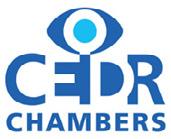

We use practitioners experienced in coaching, mediation and facilitation, negotiation and psychotherapy to maximise your chances of resolution.
We use practitioners experienced in coaching, mediation and facilitation, psychotherapy and supervision to maximise your chances of resolution and preserve relationships in the workplace.
07970 167060
020 7378 9453
caroline@sheridanresolutions.com sheridanresolutions.com
90%+ Mediation success rate Pre and post mediation coaching Mediator supervision Mediation skills for managers Clients include household names in retail, finance and leisure industries

Managing difference, tensions and conflict are key parts of organisational life. Research conducted by the Chartered Institute of Personnel and Development (CIPD) this year reports that 44% of respondents have to manage disputes at work frequently or continually and are spending between 3-4 hours per week managing conflict. More pressingly, two thirds of respondents reported that conflict had escalated and had resulted in absence for work of one of the parties involved with 28% of respondents had admitted to having left a job as a result of conflict at work. With existing CEDR research indicating that a typical employment dispute costs £277,000 in time and fees, mediation is well-placed to prevent, manage and resolve workplace conflict (the CIPD reports that 75% of HR professionals consider mediation to be the most effective approach to resolving conflict in the workplace). In order to do this, increasing numbers of organisations are introducing mediation schemes. The way mediation is embedded within an organisation is critical in ensuring its success. In order to do this effectively, there are a range of factors that need to be considered including leadership buy-in, trade union or work council support, appropriate policies and systems in place to reinforce desired behaviours and agreed approaches to how mediation schemes will be resourced and administrated.

There is not a one-size-fits-all approach when introducing mediation into an organisational context. One approach is having an internal mediation scheme. As a recent case study, a London-based organisation with over 10,000

employees spread over a number of countries, decided to introduce an internal mediation scheme when they calculated the overall cost of conflict. As part of their mediation scheme development, CEDR helped train 50 workplace mediators. The internal mediators in this instance were nominated individuals from the HR and legal teams within the organisation who could be called on to assist when differences arose between employees, leaders and staff members, and with clients. As with any culture change initiative, while the initial impact was minimal, overtime, as awareness and education grew about the benefits of mediation, the workplace mediators were increasingly used to support employees in the effective prevention, management and resolution of tensions.
A second approach is having nominated full-time professionals dedicated to handling organisational conflict. In this instance, internal mediators are supported by external mediators depending on the situation and type of dispute. In this approach external mediators are often appointed when more formal approaches are required or when there are concerns about neutrality and confidentiality. External mediation trainers are also used to support the on-going development of internallybased mediators. CEDR have seen this first-hand and are currently partnering with several organisations to support their internal mediators and organisational development professionals on culture change initiatives designed to improve the capability of employees to constructively engage with disputes and difference.
A third approach is having an externally run and administered mediation scheme. Different ADR Centres, including ourselves, administer a number of dispute
resolution schemes in a range of sectors dedicated to assisting in the resolution of difference and difficulty. When introducing a scheme there are a range of influencing factors including size and geography of the organisation, resource to run, monitor, and evaluate the scheme, and the policies and processes of how disputes will be referred to mediation.

While mediation schemes are important, they cannot effectively operate in a vacuum. As organisational and sub-organisational cultures are typically influenced by business models and people management, reinforced further through shared systems and ways of working, any culture change, such as introducing mediation, should be aligned with organisational strategy. Experience tells us, the most appropriate ways of introducing and establishing the use of mediation is through a separate mediation policy with accompanying guidelines. Existing business policies should be harmonised and aligned with existing employment, grievance and disciplinary procedures and policies. Consideration may also be given to embedding alternative dispute resolution clauses into business and employment contracts to further encourage the use of mediation as low cost and more informal method of resolving disputes.
In its research the CIPD are clear about what organisations need to be doing differently to manage conflict more effectively. Half of all CIPD respondents state that
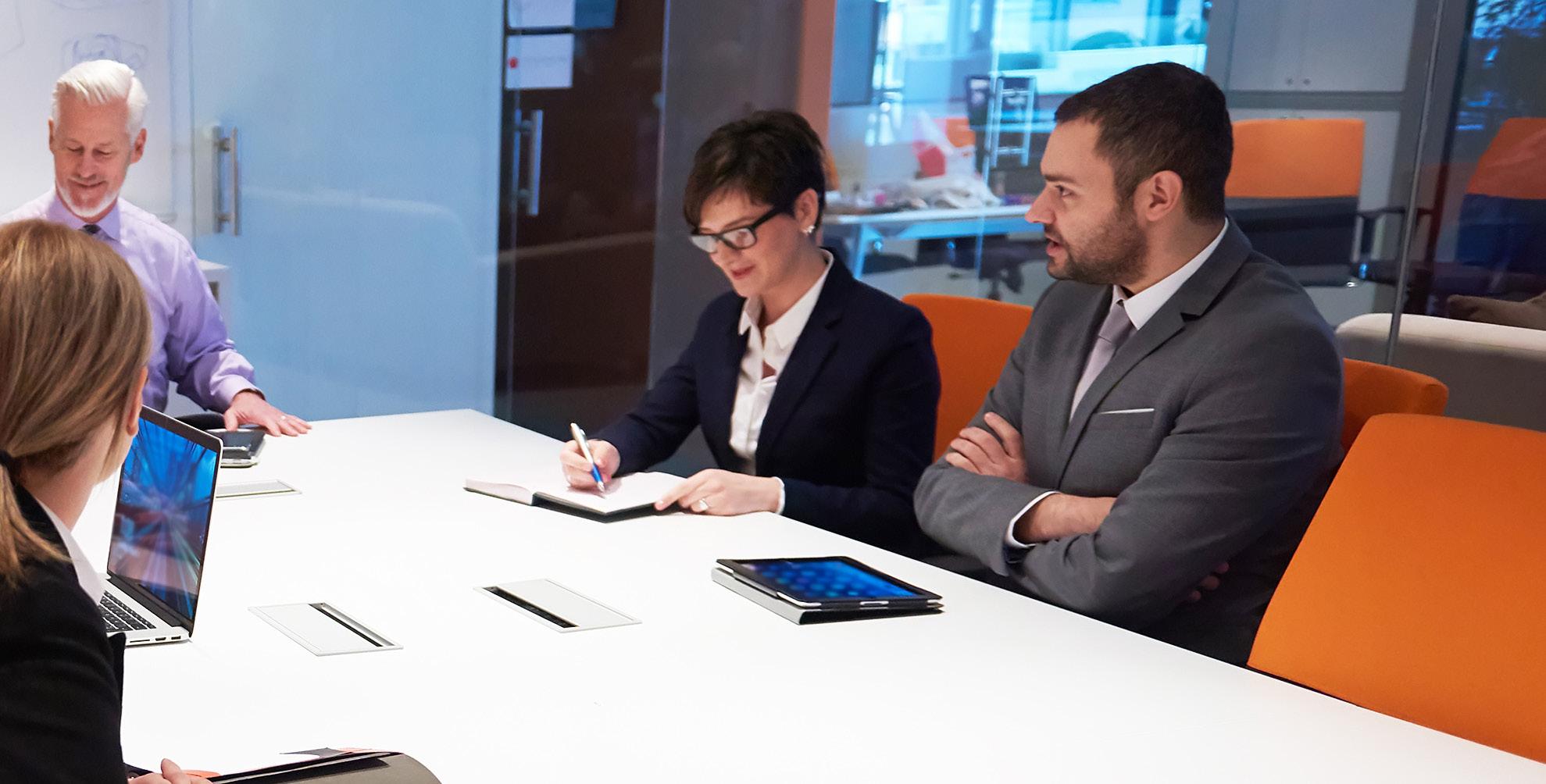
managers must develop the right skills. As a core management skill, mediation can assist leaders in building rapport, asking effective questions, how to challenge while maintaining relationships, coaching employees and teams to take more responsibility for creative problem-solving to name several. As a practical example, over the last 3 years CEDR has partnered with a global bank based in Luxembourg to enhance their organisational performance through enhancing the ability of its workforce to engage constructively with difference through utilising mediation skills. Through this organisational development initiative, CEDR designed a series of training courses for both managers and non-managers after an organisation-wide needs analysis study was undertaken. Due to the success of this approach, the Bank will continue this work for a further 3 years. Ultimately that should be seen as proof that taking an approach such as this can and will work.
www.cedr.com


“I wish we’d had this conversation a year ago”
• unresolved dispute?
• ongoing litigation?
• poor business relationships?
• slow progress on a project?
• wasted cost and time?
• contact Core
• poor communication?
• fixed positions?
• protracted negotiations?
• personal baggage?
• loss of trust?
What’s the problem? Why is this happening?
What’s the problem?
Why is this happening?
What can you do now?
What can you do now?
• have a without-commitment discussion about mediation
• bring in a mediator or facilitator
• move to a speedy, confidential, cost-effective outcome
How can you improve matters?
How can you improve matters?
• find an opportunity to talk and listen
• understand all sides
• explore the real issues
• assess the commercial risks
• identify the options
What they say:
“Thank you so much for your efforts in organising, hosting and delivering the Summer School. It was a fantastic learning experience and a very enjoyable stay at the wonderful Blair Estate… We quickly realised the impact and usefulness of the techniques we had learned! What a well organised and brilliantly delivered event.“
“This was the best course I have been on and I would recommend it to anyone who has to deal with difficult situations or people. I can’t wait to come back for the second part”
“I would have no hesitation in recommending this course to others (and in fact have done so already). Most people managers would undoubtedly benefit from the knowledge/skills that can be learned on this course - who knows, by putting it into practice, they could even help to make the workplace a kinder place to be.”
Core’s Spring School*: Using Mediation Skills as a Professional 27-29 March 2017 (CPD: 24hrs +)

Core’s Residential Summer School*: Using Mediation Skills as a Leader 3-6 September 2017 (CPD: 24hrs +)
Module 2: Building Mediator Competence
Spring: 4-5 May 2017
Autumn: 5-6 October 2017 (CPD: 16hrs +)
Module 3: Assessment
Spring: 25-26 May 2017
Autumn: 2-3 November 2017 (CPD: 20hrs)
Early bird rates available. Contact Miriam Haboubi (details below) for more information.
*Note that the Spring School and Summer School are each available as a free-standing three-day course. They are also a prerequisite, as Module 1, for attending modules 2 & 3.

he UK Mediation Journal talks to Sarah James, HR Business Partner and HR Lead for the Mediation Service at change, grow, live (CGL). CGL is an organisation with 2600 employees and is a social care and health charity that works with individuals who want to change their lives for the better and achieve positive and life-affirming goals.
HR were asked to explore how we could positively resolve the breakdown of a relationship between two management peers. A former colleague at a nearby local authority recommended mediation as a potential method of finding a positive resolution.

The relationship mentioned above had gotten to the point that the usual avenues of three way meetings, and formal grievance had failed, yet CGL was clear of the value of both staff members and the positive impact they could have for the services they worked in.
CGL has trained its own in-house mediators with the aim of dealing more effectively with how we resolve certain employee relations issues in the workplace. The aim of Mediation is not to replace the vital role of our line managers in supporting staff and addressing issues, but to assist when other avenues have already been explored and a resolution not secured.

Mediation referrals can be made by HR as part of, or at the end of, a formal process, by a manager after other methods have been tried, or employees can self-refer. Mediation provides parties with the opportunity to develop a mutually satisfying outcome by creating solutions that are uniquely tailored to meet the needs of the particular parties.
4.
Initially we used a local organisation for our first external mediation. Then we used a provider that came recommended for our training (for all four courses, including one advanced course).
The original business case was submitted to our executive team in early autumn 2012 and initially we trained 7 OCN accredited mediators in December 2012. Whilst we were waiting for the external validation of our assignments we produced our paperwork and internal process. Our first case was in February 2013 following an incident in an operational service between two colleagues, and we have subsequently mediated 48 cases.
Initially it was a pilot project across part of the organisation led by myself, and a senior operations manager. We publicised the service via attendance at regional and local management meetings; describing the service and
its potential benefits. We created an FAQ sheet on what mediation was and its potential benefits, together with a flow chart showing how the process would work at CGL (from referral to post mediation follow up), and a simple referral form. All of these were made available on our intranet.
The mediation service has mediated 21 cases in the last 12 months. A grievance at CGL can take up to 70 days to resolve, so the ill feeling in the service and, therefore, negative impact on service delivery, is prolonged.
There are also cost implications as part of a grievance investigation, and the management/HR resource required to oversee the process is substantial. Currently, mediation, from referral to holding the session, takes on average 30 days (mostly due to geographical challenges) so there are very clear benefits of utilising the internal service. It has huge time and emotional savings when compared to a grievance investigation. Most notably the potential impact of living with the conflict is considerably reduced, as well as the financial implications of formal processes being undertaken. It has also allowed us to reduce the amount of formal employee grievances and to also rebuild relationships after formal processes have been completed.
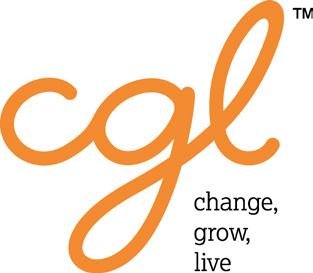

The mediation service is now more widely known by staff and features heavily on our wellbeing hub (on our intranet). This is due in part to the excellent feedback we receive from those who attend mediation.
From the last seven referrals received (in the last two months) all but one were situations where mediation was being sought prior to any formal complaint being submitted – this is a real shift for CGL as previously the majority of our referrals were as a result of recommendation from a formal process outcome. This clearly saves the time of potential investigating managers and HR.
87% of participants that responded to the post mediation feedback survey said they thought their mediation had been successful.
‘Both mediators were very professional and fare [sic]. They explained the process clearly and concisely which helped with a positive outcome. I would definitely recommend the mediation service. Thanks for all your support.’
‘Upon reflection; I found it to be a very helpful process to go through. This was helped also by the professional approach of both the mediator and assistant mediator.’
‘Very valuable in allowing individuals to feel heard in a safe environment.’
‘I came away with a positive attitude towards the process and the agreement that was reached.’
‘Very worthwhile, resolved issues that should have been addressed several years ago. I’m convinced that if the mediation process was available all those years ago then there would have been no issues today.’

All staff that have attended a mediation session have been very positive that the organisation has invested in the mediation service. They have stated that the organisation is concerned about their wellbeing and places importance on positive working relationships which ultimately has a positive impact on those end users in receipt of CGL’s services.
9. What were the difficulties or obstacles you came across when implementing the scheme?
The biggest obstacle initially was getting unanimity from senior management and overcoming initial scepticism, so we were forced to go with a pilot initially. Those that did not ‘buy in’ initially felt that the potential benefits weren’t enough to match the initial cost outlay. However, following the success of the pilot the next cohort trained were all from those that didn’t join the pilot!
When selecting the first group of mediators it was decided to spread them out geographically so we had the organisation covered – unfortunately we hadn’t thought about the neutrality of mediators, so the manager trained in Wales couldn’t actually mediate locally as he knew the parties!
11. What advice would you give to other organisations considering mediation in their organisation?
Think about who leads your mediation service – having an HR and operational lead has allowed us to tap into key areas of the business and identify where mediation could have the greatest impact. It has meant that the service wasn’t viewed as another HR or central initiative being ‘done’ to the business but had additional credibility being led by an experienced operational manager. It would also be advisable to make sure your mediators are from a range of roles and levels across the organisation as this makes the most of the skill base you already have and helps to demonstrate the neutrality of the service.
Independent Mediators Limited is a group of leading, full time commercial mediators whose independent practices are centrally managed. The company operates both in the UK and internationally.
Independent Mediators (IM) was formally launched in June 2007. We operate as a mediation chambers. All the mediators work full time as mediators and are only appointed through Independent Mediators.

Our chambers consists of Charles Dodson, Phillip Howell-Richardson, Kate Jackson, Michel Kallipetis QC, Jonathan Lloyd-Jones, Mark Lomas QC, Bill Marsh, Andrew Paton and Nicholas Pryor.



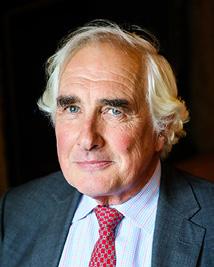

When forming IM our aim was to make the process of instructing mediators simpler and to recognise and to meet the requirements of instructing solicitors and individuals. We are very conscious of the need to provide a competitive service and are recognised as offering exceptional value for money. We make the country’s top mediators available at affordable prices for any size dispute. We do not charge any admin fees to the parties.
Only mediators recognised by the leading directories as being in the top tiers of UK mediators are invited to become members of Independent Mediators. We are unashamedly “elitist” offering some of the best mediators in Europe. We will never offer an inappropriate mediator for any instruction.



The concept has worked extraordinarily well. Instructing solicitor’s feedback shows that not only was our business model correct but that the quality of the mediators’ performance and the administrative service that supports them has probably exceeded expectations.
The number of mediations per year has consistently increased since our launch and now numbers 500+ per year. Since we launched the group we have received in excess of 4000 appointments.
The parties to cases IM members mediate range from litigants in person to multinational companies; with sums claimed from £25k to multi billion.

Appointments are received from a broad range of sources including, top ten City firms, international law firms, regional and high street practices, increasingly from inhouse lawyers, government departments, security services, local authorities, police forces and litigants in person.
The subjects mediated to name a few categories cover all aspects of commercial/financial services/banking/ employment/professional negligence/regulatory/class actions and insurance disputes.
Our appointments are increasingly from international sources with the number growing each year. Instructions from lawyers, clients and governments along with training and consultancy means our mediators have worked with over 85 countries worldwide. Following the implementation of the European Mediation Directive we took the decision to recognise the mediators experience and to offer our services to a wider audience who may wish to take advantage of the combined expertise in the growing areas of International/Cross Border/Multiparty disputes.
Our international presence has been identified by the international directory Who’s Who Legal: Commercial Mediation. They acknowledge IM as a leading mediation chambers recognised for the excellence of their specialists.
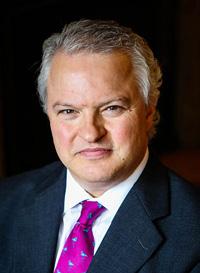

Second
Date: Saturday 1st April
Location: Regent’s University London

FEATURING KEYNOTE SPEAKER: Lord Peter Hain


ALONGSIDE OTHER DIGNITARIES INCLUDING:
Sir Henry Brooke | Sir Hugh Orde | Lord Paul Boateng | Lord Alex Carlile | Prof Sir Geoffrey Nice QC and others
TThe Mediators’ New Breakfast Club meets every other month to give mediators from every sector and of varying experience an opportunity to meet, network and learn (from each other and from the speaker).
Whether you have just accredited, are thinking of training to be a mediator, or do nothing else other than mediate, you are bound to find these meetings interesting and informative. All areas of mediation are covered with a great range of speakers looking at interesting topics such as marketing mediation, building a mediation business, mediation across the pond and others. As with any Mediator gathering it is always a very cheery occasion and well worth the effort of rising early.
Apart from the friendly people, a bonus is that attendance counts for CPD for the CMC (Civil Mediation Council) and others.

There is no “formal” membership - Non-mediators such as lawyers and users of mediation are also welcome. Meetings are held at the Punch Tavern, Fleet Street, London. They start at 08.30 and usually finish around 10.00 although many people carry on afterwards, if only to have a bacon butty!


Upcoming dates and speakers are:
• March 8th - Derek Ross
• May 10th - Milos Stanovic
• July 12th - Jane Gunn
• September 13th - Clive Lewis
• November 8th - TBC
To find out more, or to make sure you are notified of upcoming meetings please e-mail:
Dave Owen - dwo@pengaron.co.uk
Your membership means we can do more, faster. In 2017 your contribution will be used to
• develop, host and maintain the website as the first port of call for information on mediation for individuals and organisations
• subsidise educational events for different sectors
• subsidise the CMC Conference to make it accessible to practitioners and end users across the full spectrum of mediation
• contribute to essential marketing and communications activities to promote mediation as the first resort.
To find out more about joining the CMC scan the QR code or visit civilmediation.crg/join-cmc

To enquire about membership contact: registrar@civilmediation.org
When choosing a mediator or mediation skills training provider, make sure you choose one that is CMC Registered. You can search our membership database or verify registration at civilmediation.org/members-search.php


‘Working

“Unrivalled expertise and range of experience including workplace mediation, HR, legal, facilitation, coaching and training. We approach all our services with the aim of positively enhancing relationships and organisational performance.”




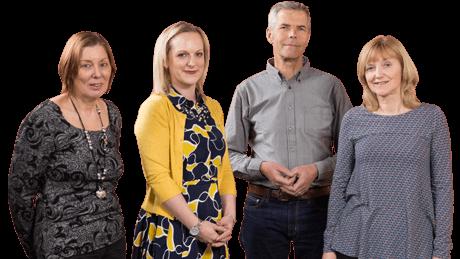
WWW.MEDIATIONATWORK.CO.UK 0117 3739192 info@mediationatwork.co.uk @mediation_work



WWW.ALISONLOVE.CO.UK 01446 760 933 al@alisonlove.co.uk @alisonloveltd

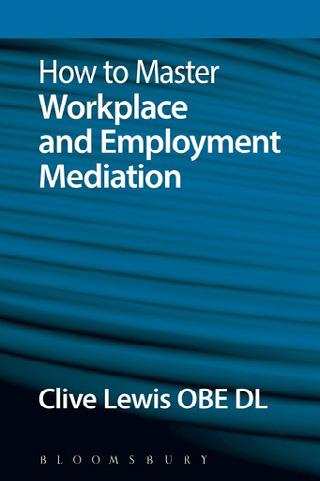
Clive Lewis OBE DL is one of the UK’s most influential and sought after workplace and employment mediators. He was one of the UK’s first HR Professionals to gain accredited mediator status with CEDR. He is the author of thirteen books and is currently the UK’s most published author on the topic of mediation in the workplace. He has mediated more than 400 disputes and has advised Governments including Algeria and Jordan. Clive was a Board member of the Civil Mediation Council for 6 years. The council advised UK Government.
Clive is a Business Psychologist and founding director of Globis Mediation Group.


www.stillhr.com
For more information about the book and the mediation services and training courses provided by Globis, please call 0330 100 0809 today.
www.globis.co.uk


During 2015, the Civil Mediation Council board took part in numerous consultations on behalf of the membership. The most significant among these was the rigorous consultation on the Civil Courts Structure Review undertaken by Lord Justice Briggs. Mediation has an important role to play in any modern justice system. The Interim Report1 was published in December 2015 and further comments were invited in response to proposals. The final report 2 was published on 27th July 2016.


The report outlines the way forward for the Courts and signposts the role of mediation within a new streamlined court structure.
There is distinct progress on the integration of mediation (and other forms of dispute resolution) into the proposed new structure. It may not go far enough for some, but it is welcomed by Civil Mediation Council who will continue to promote the use of mediation, especially in the pre-issue stage, thereby offering parties the opportunity to reduce legal costs.

The report refers to ‘conciliation services’ which is described in the glossary as ‘an umbrella expression used in the report to include all types of ADR and also conciliation services provided (or to be provided) by the court service.
Below are the highlights from the report which refer to mediation.
The report notes a shortfall in the uptake of mediation, particularly for middle value cases. To remedy this, Lord Justice Briggs recommends that the MOJ “re-establish a court-based out-of-hours private mediation service in County Court hearing centres prepared to participate, along the lines of the service which existed prior to the establishment and then termination of the National Mediation Helpline (NMH).”
The NMH was successful but came to an end on 1st October 2011 due to lack of funds to continue with the outsourced service.
Lord Justice Briggs also favours a wider use of mediation, conciliation and adjudication in the Online Court: his preferred name for which is the Online Solutions Court.
The number of Small Claims Mediation Service has increased the number of mediators from 14 to 17. Even so, the service deals with just 35 – 40% of national demand.
• The relevant forms will be reviewed to aid the choice of mediation by small claims litigants.
• Judicial conciliation, as practiced in some parts of the country, is successful and more successful than mediation in small claims (50% settlement).

• The Online (Solutions) Court will still provide for a second stage involving human interaction for cases which need face-to-face hearings. That might include video and telephone hearings.
• The Small Claims Mediation Service will be an important part of the second stage ‘conciliation’ offering “but it will be unlikely to be suitable for cases at the higher end of a court with jurisdiction up to £25,000, and there may be many cases at all levels of value which would benefit more from some other kind of conciliation process, such as ODR, judicial ENE or private mediation, such as used to be available under local County Court out-of-hours schemes or, latterly, from the National Mediation Helpline prior to its early demise.” Says Lord Justice Briggs. And, he suggests that the proposed re-establishment of the out-of-hours scheme and the NMH would be served by ‘a substantial over-supply of trained and qualified mediators who, it is reasonable to suppose (and as was demonstrated by the after hours service) are likely to be prepared to offer their services at very competitive rates, and sometimes pro bono.’

The report notes that the use of mediation is not as common in clinical negligence and personal injury claims even though “these types of claims are ‘widely and successfully’ mediated in other countries.”
The recent Invitation to Tender issued by the National
Health Service Litigation Authority would suggest that public bodies are taking note of the recommendations in the report.
The report also considers the introduction of a version of the MIAM (Mediation, Information and Advice Meeting) within civil litigation generally, so as to increase the prospect that parties undertake mediation or other forms of ADR before the issue of proceedings. Lord Justice Briggs does not favour the introduction of pre-action protocols for the online court. “At the most it might recommend a simple exchange of correspondence.”
The report clearly differentiates these two forms of online activity. The Online Court being for claims up to £25,000 dealt with online which would have a second stage if required. Online Dispute Resolution being the range of online dispute resolution processes available to litigants.
As the report recognises, there are an array of different cases which fall under the £25,000 threshold and therefore different cases will require different ADR which is appropriate to the case.

On 10th October 2016 Lord Justice Briggs attended an event as part of Mediation Awareness Week. At the event he said that the “resolution” of civil disputes will play a central part in the new court. He hopes to see this development “take the A out of ADR”, with mediation becoming a normal but voluntary process, in the form of online, telephone and face-to-face mediation. This, he hopes, “will blaze a trail for the widening scope of mediation”.
The CMC will continue to work with appropriate government departments on the development of mediation as a realistic choice for resolving disputes at any stage.

1https://www.judiciary.gov.uk/wp-content/uploads/2016/01/ccsr-interim-reportdec-15-final1.pdf
2 https://www.judiciary.gov.uk/wp-content/uploads/2016/07/civil-courtsstructure-review-final-report-jul-16-final-1.pdf


 By Paul Randolph (Based
By Paul Randolph (Based
upon an article written for the Dispute
It is a common feature in nearly all negotiations that each side views the identical facts and issues from a wholly contrary perspective. The American comic George Carlin fittingly pointed out how we see things from opposite ends of the spectrum when he described drivers on a motorway: ‘anyone driving slower than you is an idiot, and anyone driving faster than you is a maniac’. In negotiations, whether or not parties go so far as to see each other as idiots and maniacs, they will nevertheless simultaneously view each other as selfish, self-interested, greedy and egotistical.
Never is this likely to be more apparent than in the case of negotiations following a Referendum as critical as one deciding whether we stay in or out of Europe. The European negotiators will see the UK Government negotiators as representing the maniacs who voted to leave, and the Europeans will be viewed as self-serving self-absorbed idiots. Both may start from a position where they consider each other’s arguments to be inexplicable, incomprehensible, bizarre and wholly irrational.
AppointmentServices Newsletter sent to the Members of the
 CIArb)
CIArb)
A mediator’s task would be to bring such diametrically opposite views closer to some commonality – to secure a perception shift in either one or both of the opposing negotiators. The shift of attitude required for consensus will be fundamental in any negotiations between the UK Brexiteers and the EU. Securing such a change will not be easy. The negotiators on each side carry with them the mutual distrust of their governments – and the mutual scepticism and cynicism of millions of constituents. The respective negotiating positions will have been developed through the events and debates over the past months, and perhaps underpinned by years of mutual misperceptions. These views may have become even more entrenched as a result of the recent proceedings in the Supreme Court, with comments and briefings received from colleagues and experts, and the media. The negotiating teams will find it difficult to ignore the constant diet of one-sided and subjective views, emanating from partisan reporting and briefings. At the same time, the two negotiating parties are likely to have become wholly impervious to any


contrary observations and evidence presented to them. ‘Cognitive Dissonance’ will have taken a hold, whereby each side hears and seizes only the points in their favour, and ignores or dismisses all counter arguments. Nor will it help that there is such an atmosphere of uncertainty surrounding these Brexit negotiations. The desire to achieve some certainty can lead to greater tendency towards drawing ‘red lines’, setting firm limits and strict boundaries.
A further aspect rendering the Brexit negotiations troublesome is the level of distrust between the two sides. It is well known that the prospects of a successful outcome to negotiations are vastly improved when there is mutual respect between the negotiators. Between the Brexiteers and the EU, there is regrettably a vast chasm of mistrust. Those who argued to leave the EU perceive the EU to be the font of all ills that have befallen the United Kingdom, as a result of the myriad of costs and constraints imposed, and the heavy economic, social and political regulation. Many see the EU as a repository of corrupt practices, with State governments filling their coffers with extorted funds, and Euro MPS stuffing their pockets with ill-gotten gains. The EU negotiators, on the other hand, have already painted the Brexiteers as bare-faced liars, persistently deceivingd the nation with a catalogue of one-sided untruths.

Is there hope for negotiations to succeed under such circumstances? Are we to see both sides engaging in little other than positional and purely strategic bargaining? Is
there a significant risk that they will simply set out their respective stalls, and then return home empty handed, whilst continuing to accuse each other of causing the impasse, and creating deadlock through unreasonable intransigence? Could mediators assist, having regard to their expertise in securing paradigm shifts in hardened attitudes and rigid ‘sedimented’ positions – all in a short space of time?

It is widely accepted that mediators can facilitate resolutions and help to find common ground where negotiations have failed. Mediators could allow both negotiating teams to be properly ‘heard’, at times when dialogue has become difficult, unconstructive or even impossible. Mediators are trained to address the interests of all parties in such a way as to preserve on-going working relationships, and avoid ‘win/lose’ decision-making processes. They are skilled in moving parties away from positional bargaining whilst promoting interest-based negotiations – and where commercial relationships need to be terminated they can achieve acceptable results that minimise acrimony and encourage greater cordiality in the parting of the ways.
So, mediators, stand by your phones and await the call.


ADR-ODR International is the first company to bridge the gap between traditional face-to-face ADR and the digital world of Online Dispute Resolution. We offer our clients ADR and ODR professionals for hire to help them resolve their disputes. We also offer training for aspiring mediators and arbitrators and many national and international projects.

ADR-ODR International is committed to creating dialogue in conflict torn areas across the globe. We have established connections across Europe, Asia and Africa and will be working across many locations to increase dialogue between conflicting parties. We understand that not all conflict can be resolved in a formal setting therefore we have created the Centre for Poetry and Conflict Resolution which will use the power of the written word and poetry to bring peace to conflicting parties.
ADR-ODR International’s business model is split into 3 hubs. The Civil-Commercial hub, the Family Hub and the Workplace Hub. The principals of our hubs are Rahim Shamji, Cressida Burnet and Pamela Whitehead who are all also part of our cADRe team. In each hub you can book negotiators, mediators and arbitrators or sign up to our tailor-made mediation and arbitration training.
Our mediation training is delivered by global experts who are practicing mediators. All of our mediation courses, when successfully completed, include a dual-qualification meaning that all of our graduates will be qualified as faceto-face and online mediators. All of our delegates will receive hard copies of their course texts and an electronic

copy on an iPad which we provide for them to use for the duration of their course. The use of the iPads allows each delegate to have easy access to the course texts, handouts, presentations and video recordings of their practice performances, anytime, anywhere. At the end of each course we record each delegate’s practical exam on their iPad so they can download a copy and we can review their exam performances and get them graded quickly from anywhere in the world. Our aim is to create training that is accessible to all and up-to-date with modern technology. We believe this will allow our graduates to flourish in the modern mediation and ODR industry.
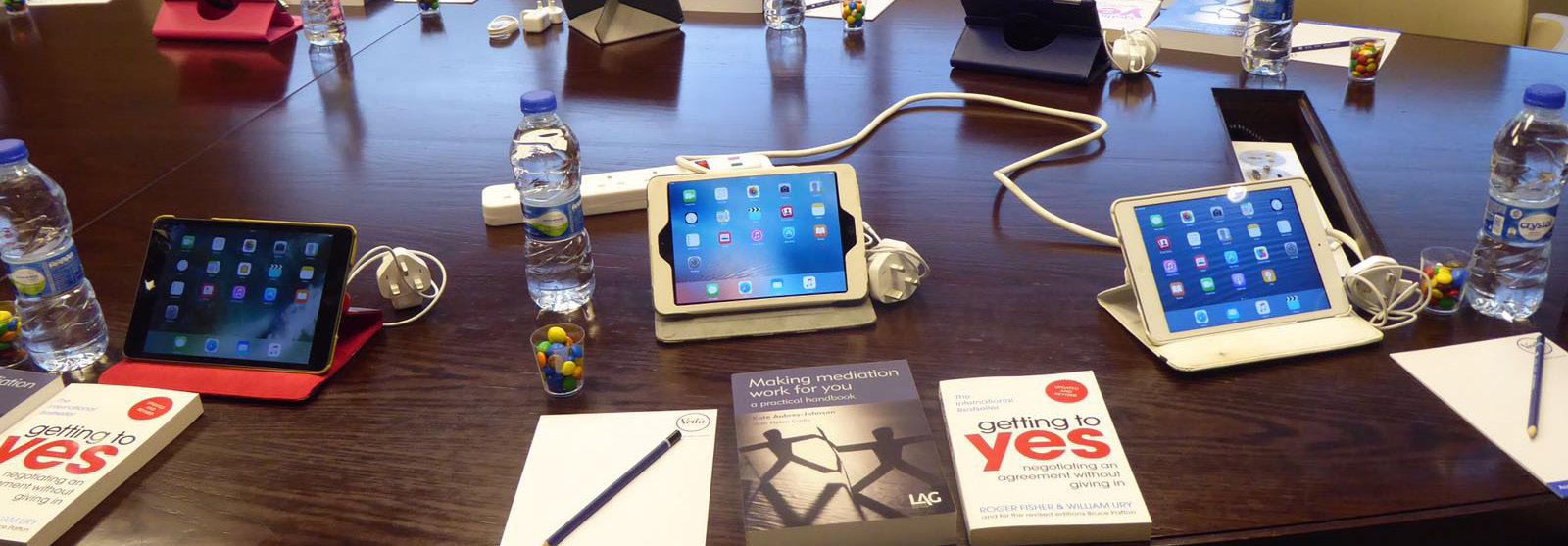
We also have a first class team of cADRe experts who are ready to give our clients expert advice on any area of conflict/ dispute. Some of our experts include: Lord Peter Hain (former British cabinet member), Ales Zalar (former Justice Secretary of Slovenia), Dame Linda Dobbs (former High court judge), Dr Zaza Elsheikh (faithful dispute resolution specialist), Diana Wallis (former MEP and Commercial specialist) and Zoe Giannopoulou (ADR and conflict expert, Greece) to name a few.
ADR-ODR INTERNATIONAL
ALISON LOVE LIMITED
CEDR
CLERKSROOM MEDIATION
CONSENSIO
CORE SOLUTIONS GROUP
EMPIRE
GARDEN COURT MEDIATION
GREATER LONDON AND EAST ANGLIA MEDIATION LLP
ADR-ODR INTERNATIONAL LTD

t: +44 (0)20 3488 1979
e: info@adrodrinternational.com
w: www.adrodrinternational.com
We have a panel of internationally distinguished mediators who cover over 10 countries, speak over 15 languages and cover a huge range of specialisms. To join our panel, receive exclusive discounts and have your profile featured on our website, email info@adrodrinternational. com
JAMS INTERNATIONAL

KINGSWAY LAW
MEDIATION AT WORK LIMITED
PAUL RANDOLPH AT REGENT’S UNIVERSITY LONDON
ROGER LEVITT
SHERIDAN RESOLUTIONS LTD
STILLHR
WANDSWORTH MEDIATION SERVICE
t: +44 (0)1823 704 099
e: mediation@clerksroom.com
w: www.clerksroom.com
a: Equity House, Blackbrook Park Avenue, Taunton, Somerset TA1 2PX
Clerksroom Mediation is a leading National CMC Accredited Provider offering a choice of over 500 mediators. We are able to offer civil mediators to suit every dispute complexity, location and budget. You will benefit from our National Mediators Database along with efficient administration provided by experienced and dedicated clerks.
ALISON LOVE LIMITED

t: +44 (0) 7808 829 545
e: al@alisonlove.co.uk
w: www.alisonlove.co.uk
a: Kingsclere, Gwern Y Steeple, Peterston Super Ely, Cardiff, CF5 6LG
Alison Love Limited brings powerful solutions and business benefits by providing accredited independent and external resources to help resolve conflicts and disputes in a cost-effective manner. Alternatively, we can also help organisations to build an internal capacity. Services include mediation, conflict coaching, neutral assessments and workplace investigations.
CEDR
t: +44 (0)20 7536 6060
e: adr@cedr.com
w: www.cedr.com
Europe’s largest independent commercial and workplace dispute resolution provider: CEDR has worked with over 100,000 parties in commercial disputes and helped resolve over 300,000 consumer complaints across 30 sectors. A select few of the individuals CEDR trains progress to join the CEDR Mediation Panel, which currently comprises 200 mediators speaking 15 different languages.


t: +44 (0)20 7831 0254
e: hannah.king@consensiopartners.co.uk
w: www.consensiopartners.co.uk

a: 51 Musard Road, London, W6 8NR
Contact: Hannah King
Consensio is a leading workplace mediation provider, helping organisations to manage workplace conflict. Our services include: 1) mediation and conflict resolution training ranging from taster events to accredited training, 2) external mediation services for two-party and team disputes, 3) conflict coaching and 4) consultancy services to transform organisational responses to conflict.
t: +44 (0)131 524 8188
e: info@core-solutions.com
w: www.core-solutions.com
For fifteen years, Core has provided a comprehensive mediation service at the highest levels in commercial, business, management, public sector and other disputes. Led by highly-ranked John Sturrock QC, we work throughout the UK and beyond, providing a high quality, independent mediation and facilitation service, as well as specialist coaching and training.

®
EMPIRE
t: +44 (0)1224 701 383

e: e.masson@empirehr.com
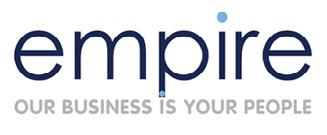
w: www.empirehr.com
a: 117 Grandholm Drive, Bridge of Don, Aberdeen AB22 8AE
Contact: Elaine Masson
Our mediators are registered with the Scottish Mediation Network and meet the stringent professional standards set by that organisation. We provide flexible, pragmatic and commercial support to help clients and parties identify practical solutions to workplace conflict, whether complex disputes, personality conflicts, support following conclusion of formal procedures and facilitating return to work after stress related absence.
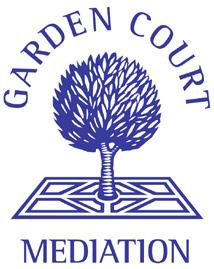
t: +44 (0)20 7993 7600
e: mediationclerks@gclaw.co.uk
w: gardencourtmediation.co.uk
a: 57-60 Lincoln’s Inn Fields, London WC2A 3LJ
Contact: Lavinia Shaw-Brown
We offer a flexible, high-quality mediation service from the initial inquiry through to finding agreement. We have a team of experienced, professional mediators with the interpersonal skills to suit all civil, commercial, workplace and family disputes. Our aim is to help you find a resolution to the dispute quickly and effectively.



t: +44 (0)1206 217 133
e: mediation@gleamed.co.uk
w: www.gleamed.co.uk
a: 63 West Stockwell Street, Colchester CO1 1HE London Office also available
Contact: Tom Thomas
GLEAMED provides civil/commercial, workplace/employment, family, and community mediation in East Anglia and London, referred by individuals, lawyers, firms/organisations and courts. We handle contractual, property, boundary, rental, child contact, divorce, workplace and many other types of dispute and offer international mediation, working with The Human Right Centre at University of Essex.

t: +44 (0)20 7127 9223
e: imoffice@independentmediators.co.uk

w: www.independentmediators.co.uk
Leading UK and international mediation chambers consisting of nine highly experienced mediators; Charles Dodson, Phillip Howell-Richardson, Kate Jackson, Michel Kallipetis QC, Jonathan Lloyd-Jones, Mark Lomas QC, Bill Marsh, Andrew Paton and Nicholas Pryor. Mediating commercial and civil disputes, the number of mediations per year has consistently increased and now numbers 500+ per year. Since launch in 2007 the group has received in excess of 4000 appointments.
JAMS INTERNATIONAL
t: +44 (0)20 7583 9808
e: mrushton@jamsinternational.com
w: www.jamsinternational.com
JAMS International is part of JAMS, the world’s largest private provider of ADR services. From its London office, JAMS International provides arbitrators and mediators for cross-border and UK domestic disputes across a full range of industry sectors and practice areas.
t: +44 (0) 7825 894 893
e: larry.george@kingswaylaw.uk
w: linkedin.com/in/larry-george-b9114a46
a: P.O. Box 516, Cambridge CB1 0BD
Contact: Larry George
Qualified solicitor; CEDR accredited mediator, 2010. Larry has 30+ years of experience as a commercial legal adviser advising on corporate and commercial matters. He has specialised in the oil business including oil trading but also has a great deal of experience in general commercial areas including in contracts, terms of trade and related disputes. Mediation experience includes franchising, engineering contracts and professional negligence. Larry has wide international experience and is a fluent Russian speaker.

t: +44 (0) 1173 739 192
e: info@mediationatwork.co.uk
w: www.mediationatwork.co.uk

a: 22 Stanbury Avenue, Fishponds, Bristol, BS16 5AN
Set up in 2000 Mediation at Work is a leading provider of workplace mediation and conflict resolution services. Based in Bristol but working with clients nationally our team of experts provides individual and team mediation services, conflict coaching, training, workplace investigations, neutral assessments and supervision / support for practising mediators.
PAUL RANDOLPH
AT REGENT’S UNIVERSITY LONDON
t: +44 (0)20 8339 0767
e: randolphp@regents.ac.uk
w: www.regents.ac.uk/RSPP
A leading mediator, trainer and writer, whose approach adopts a subtle focus on the psychology of conflict. He has mediated successfully in a wide variety of disputes, including commercial, workplace, family property and finance, and professional negligence matters, but with particular expertise in conflicts with high emotional content.
t: +44 (0)7776 141 717
e: levittroger@gmail.com
w: www.rogerlevittmediation.co.uk
I undertake all types of commercial mediation including: Property, Construction, Partnership, Corporate, Professional Indemnity, Insurance Financial & Wills. Member of Civil Mediation Council Registration Committee.
STILLHR
t: +44 (0)7932 762 448
e: robert@stillhr.com
w: www.stillhr.com
Contact: Robert Still
Conflict Resolution
SHERIDAN RESOLUTIONS LTD
t: + 44 (0)7970 167 060
t: 167 060
e: caroline@sheridanresolutions.com
e: caroline@sheridanresolutions.com
w: www.sheridanresolutions.com
w: www.sheridanresolutions.com
Contact: Caroline Sheridan
Contact: Caroline Sheridan
Caroline has developed her reputation and Legal Directory-rated practice as a leading CEDR Chambers accredited Mediator across the full range of workplace and employment disputes.

With qualifications and experience also in psychometrics, psychotherapy, counselling, coaching and supervision, Caroline offers pre and post mediation coaching, mediator supervision and mediator skills development for managers and leaders.
Caroline is a leading mediator recognised in both the Chambers UK and Legal 500 directories. She has a thriving mediation practice and clients say she is ““extremely organised and meticulous” and “quickly gets to understanding and building rapport”. She is noted for her “methodical, relaxed, approachable and open” manner. Additionally, Caroline is in demand as an Executive Coach and Supervisor and her company, Sheridan Resolutions Ltd runs management and leadership development programmes and she is Chair of the CMC’s Workplace and Employment group.
Conflict Resolution

Employee Relations Facilitation Training
Employee Relations Facilitation Training
Qualified workplace mediators. Robert Still and Olaleye Oladapo. Over 10 years’ experience across the UK. CMC Registered Mediation Provider 2017. Resolving individuals and team conflict.
‘Working with individuals and organisations to improve their workplaces and working relationships’
‘Working with individuals and organisations to improve their workplaces and working relationships’
WANDSWORTH MEDIATION SERVICE
t: +44 (0)20 7223 7744
e: wms@wandsworthmediation.co.uk

w: www.wandsworthmediation.co.uk
a: St Marks Durie Hall, Battersea Rise, London SW11 1EJ
Wandsworth Mediation Service (WMS) is a charity that was set up in 2004. We now offer 4 types of mediation; family, inter-generational, community and commercial. All of our mediations are undertaken by volunteer mediators who are all trained and qualified mediators committed to serving their local community. WMS is also involved with delivering a number of conflict resolution training courses within secondary schools in the borough.

www.stillhr.com
Call Robert Still: 07932 762448
www.stillhr.com
UK-wide, now based in West London and West Yorkshire!
Call Robert Still: 07932 762448
UK-wide, now based in West London and West Yorkshire!
ADR-ODR INTERNATIONAL
ALISON LOVE LIMITED
CEDR CONSENSIO
CORE SOLUTIONS GROUP
GREATER LONDON AND EAST ANGLIA MEDIATION LLP
MEDIATION AT WORK LIMITED
ADR-ODR INTERNATIONAL LTD

t: +44 (0)20 3488 1979
e: info@adrodrinternational.com
w: www.adrodrinternational.com
All of our delegates will be trained for a dual qualification in face-toface and online mediation. All of our training courses are tailor-made by industry experts across the Civil-Commercial, Workplace and Family mediation sectors. We also offer top up ODR courses and masterclasses. To sign up email info@adrodrinternational.com
CONSENSIO
t: +44 (0)20 7831 0254
e: hannah.king@consensiopartners.co.uk
w: www.consensiopartners.co.uk

a: 51 Musard Road, London, W6 8NR
Contact: Hannah King
Consensio is a leading workplace mediation training provider, helping organisations to manage workplace conflict. Our services include:
1) mediation and conflict management training, ranging from taster events to accredited training,

2) external mediation services for two-party and team disputes,
ALISON LOVE LIMITED

t: +44 (0) 7808 829 545
e: al@alisonlove.co.uk
w: www.alisonlove.co.uk
a: Kingsclere, Gwern Y Steeple, Peterston Super Ely, Cardiff, CF5 6LG
Alison Love Limited provides thought provoking, creative and engaging training on both an open and in-house basis. Our range of training courses include accredited mediation skills training, difficult conversations, conflict management, conflict coaching and team conflict. Additionally we provide supervision and support for practising mediators.
CEDR
t: +44 (0)20 7536 6000
e: training@cedr.com
w: www.cedr.com
CEDR Mediator Skills and Workplace Training are five-day programmes of comprehensive tuition and participation in effective dispute resolution where participants are trained and assessed for CEDR Accreditation, internationally recognised as the standard of excellence. CEDR has accredited over 7,000 mediators in over 70 jurisdictions.


4) consultancy services to transform organisational responses to conflict.
3) conflict coaching and
CORE SOLUTIONS GROUP

t: +44 (0)131 524 8188
e: info@core-solutions.com
w: www.core-solutions.com
Core’s flagship mediation training course is highly regarded across the UK and beyond. Tried and tested from years of experience in mediation and in some of the toughest negotiations, our internationally recognised team of coaches is led by senior mediator, John Sturrock QC. “It simply is the best course I’ve ever attended. The whole course was incredibly interesting, engaging and challenging!” - Participant from major bank. Registration for Core’s 2017 flagship courses is now open. See website for details.
GREATER LONDON AND EAST ANGLIA MEDIATION LLP

t: +44 (0)1206 217 133
e: mediation@gleamed.co.uk
w: www.gleamed.co.uk
a: 63 West Stockwell Street, Colchester CO1 1HE London Office also available
Contact: Tom Thomas
GLEAMED offers mediation awareness training presentations to businesses, organisations, lawyers, etc. and the School of Law at University of Essex. We also offer OCN accredited and Civil Mediation Council compliant mediator training courses for civil/commercial mediation, workplace/employment mediation and community mediation - including neighbourhood mediation, inter-generational mediation and peer mediation.
t: +44 (0) 1173 739 192
e: info@mediationatwork.co.uk
w: www.mediationatwork.co.uk

a: 22 Stanbury Avenue, Fishponds, Bristol, BS16 5AN
Mediation at Work is a leading provider of conflict resolution services. Based in Bristol but working with clients nationally we provide engaging training courses externally and in-house around conflict resolution. Train to become a workplace mediator on our accredited mediation programme. We also provide supervision and support for practising mediators.
PAUL RANDOLPH
AT REGENT’S UNIVERSITY LONDON
t: +44 (0)20 8339 0767
e: randolphp@regents.ac.uk
w: www.regents.ac.uk/RSPP
Paul is Course Leader of the Mediation Course at Regent’s University London – a unique course which approaches mediation training from a psychological perspective. The course focuses upon the psychological behaviour of parties in conflict, providing mediators with vital tools for resolving disputes in all legal, commercial, and social conflict areas.
STILLHR
t: +44 (0)7932 762 448
e: robert@stillhr.com
w: www.stillhr.com
Contact: Robert Still
Mediation
Conflict Resolution
5 DAY MEDIATION SKILLS COURSE
t: +44 (0)20 8339 0767
e: paul@paulrandolph.net
w: www.regents.ac.uk/mediate
a: Regent’s University London, Inner Circle, Regent’s Park, London NW1 4NS
Contact: Paul Randolph
Study the skills for conflict resolution and become an accredited mediator with our five-day course. At Regent’s our unique psychotherapeutic method of mediation training will equip you with a framework for conflict management and resolution crucial for dealing with commercial, employment, workplace, legal, industrial and personal disputes. We focus on providing a high standard of teaching from experienced tutors delivered in a quality environment.
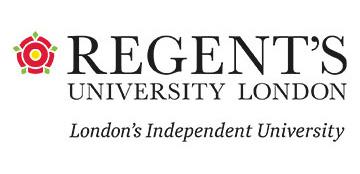

POSTGRADUATE CERTIFICATE IN MEDIATION AND CONFLICT

RESOLUTION
t: +44 (0)20 7487 7505
e: benjaminp@regents.ac.uk
w: www.regents.ac.uk/mediate
a: Regent’s University London, Inner Circle, Regent’s Park, London NW1 4NS
Contact: Philip Benjamin
Study the skills for conflict resolution and become an accredited mediator with our Postgraduate Certificate course. This part-time programme provides an added academic and theoretical approach to the practical aspects of conflict resolution and mediation, developing a broad understanding of the causes of and responses to conflict. Modules include Theories of Conflict, Applied Theory and Skills for Alternative Dispute Resolution.
Mediation
Conflict Resolution
Employee Relations Facilitation Training
Employee Relations Facilitation Training
The ‘first’ accredited workplace mediation training to be established in the UK, designed by PMR Ltd and receiving high acclaim since 1996. OCN Accredited 6-day programme; delivered in-house by qualified and practicing workplace mediator, Robert Still FCIPD.

‘Working with individuals and organisations to improve their workplaces and working relationships’
‘Working with individuals and organisations to improve their workplaces and working relationships’

www.stillhr.com
Call Robert Still: 07932 762448
www.stillhr.com
UK-wide, now based in West London and West Yorkshire!
Call Robert Still: 07932 762448
UK-wide, now based in West London and West Yorkshire!
Stephen Walker
9781780439938
December 2015 | Paperback
£80.00 £64.00
Mediation Advocacy: Representing Clients in Mediation


Stephen Walker
9781780437927
February 2015 | Paperback
£70.00 £56.00
How to Master Commercial Mediation

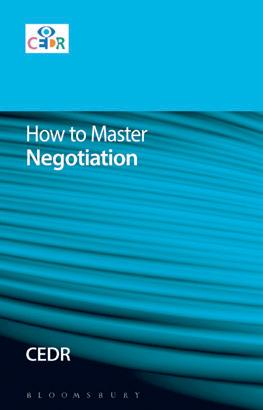

David Richbell with a team of specialist contributors
9781780436821
December 2014 | Paperback + CD ROM
How
CEDR
9781780437965
September 2015 | Paperback
£55.00 £44.00
Clive Lewis OBE DL
9781780437941
July 2015 | Paperback
£75.00 £60.00
Mediation:
Stephen Walker
9781780439969
October 2016 | Paperback
£19.99 £15.99
International Mediation: Breaking Business Deadlock


NEW EDITION
Eileen Carroll QC (Hon) & Dr Karl Mackie
9781784512453
July 2016 | Paperback
£54.99 £43.99
The Psychology of Conflict: Mediating in a Diverse World NEW BOOK
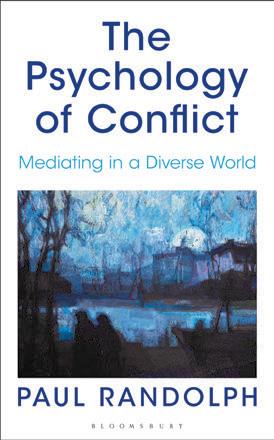
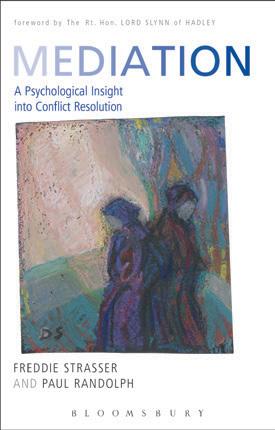
Paul Randolph
9781472922977
February 2016 | Paperback
RRP £30.00
Mediation: A Psychological Insight into Conflict Resolution
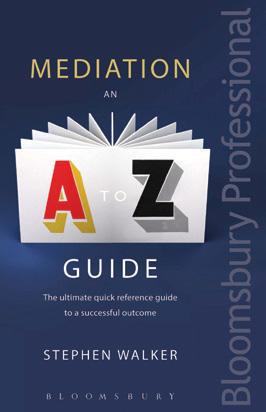
Freddie Strasser, Paul Randolph
9780826475039
August 2004 | Paperback
RRP £25.99
IN YOUR
Resolving conflict in any organisation is a critical skill. Building on our internationally recognised and industry leading commercial Mediator Skills Training, CEDR’s Employment and Workplace course will provide participants with the full skill set required for the effective mediation of workplace and employment disputes.
Under the expert guidance of some of the UK’s leading mediator trainers, all experienced in commercial and specifically employment and workplace mediation, participants will learn how to:
n Settle disputes and conflicts effectively - in days rather than weeks or months, saving vital management time
n Add value to organisations by effective and timely management of conflicts and disputes - by finding sustainable solutions to potentially intractable problems
n Manage the mediation process and facilitate constructive negotiation
n Advise others on the features and uses of other effective dispute resolution techniques
This highly participative programme is a core management competency and forms the toolkit for:
n HR Professionals
n Employment Lawyers or In-house counsel
n General Managers and Executives
n Trade Union officials
Recognising that a number of attendees on this Employment and Workplace programme may decide either at the outset, or at a later stage, that they would like to work towards achieving Full CEDR Accreditation, we also deliver a three-day Accreditation module as a follow up to this course.
Successful completion of this commercial conversion course leads to the title of CEDR Accredited Mediator.
Available as an open course throughout the year on an in-house basis
n Intensive course with over 50 hours of teaching
n Live demonstration of mediation process and skills
n Active engagement through role play
n Extensive coaching of participants
n One-to-one feedback
“A great introduction to mediation for those wishing to understand the process and start practicing the skills.”
SENIOR MANAGER, EMPLOYEE RELATIONS
HR STRATEGY & POLICY, ERNST & YOUNG LLP
“An excellent course that has provided a usable framework for use within the workplace.”
HR BUSINESS PARTNER, THREE
“An excellent course with empowering faculty, very challenging but entirely worthwhile.”
SOLICITOR, CROWELL & MORING
www.cedr.com
If you would like to find out more or arrange a meeting to discuss your needs please contact CEDR by emailing training@cedr.com or calling +44 (0)20 7536 6000.